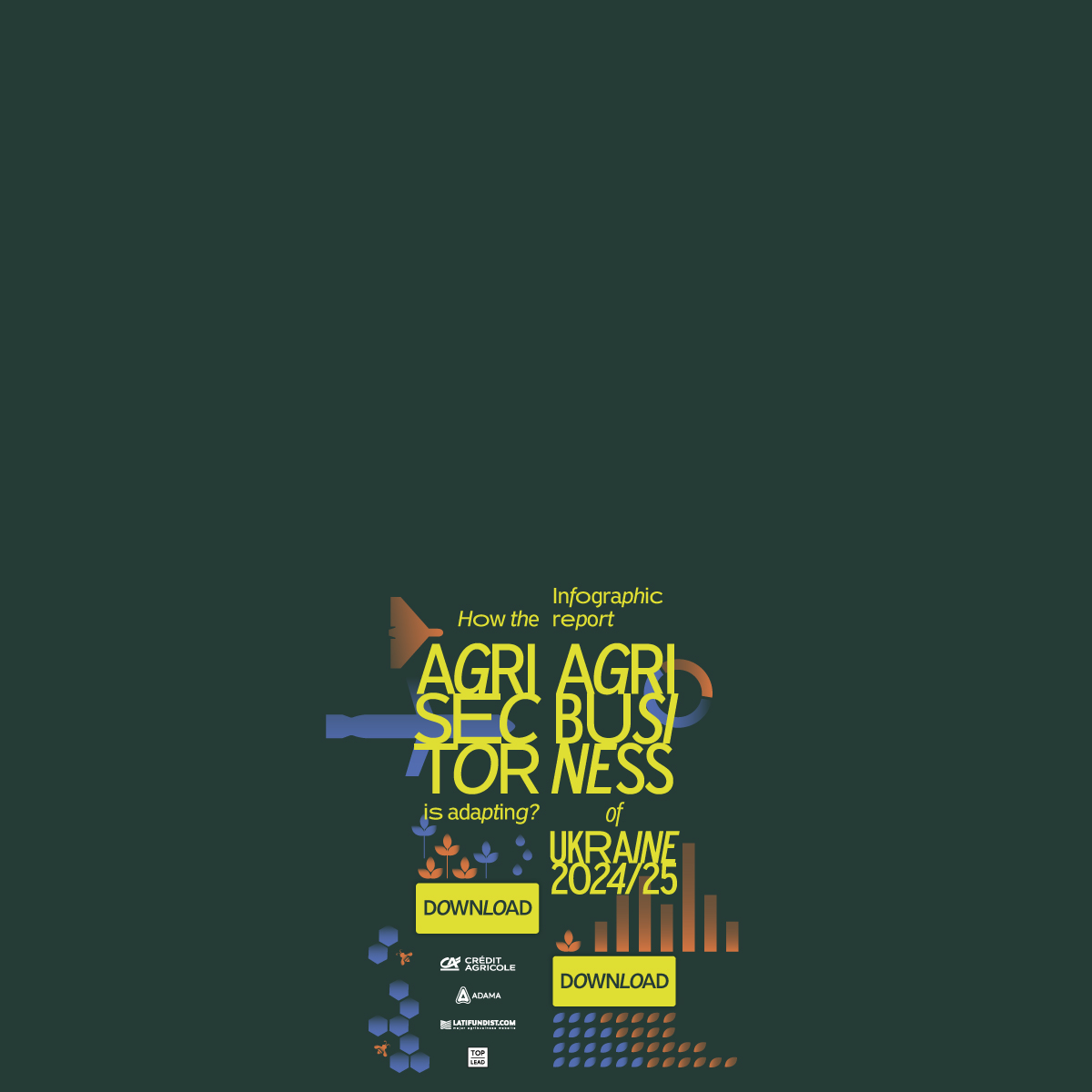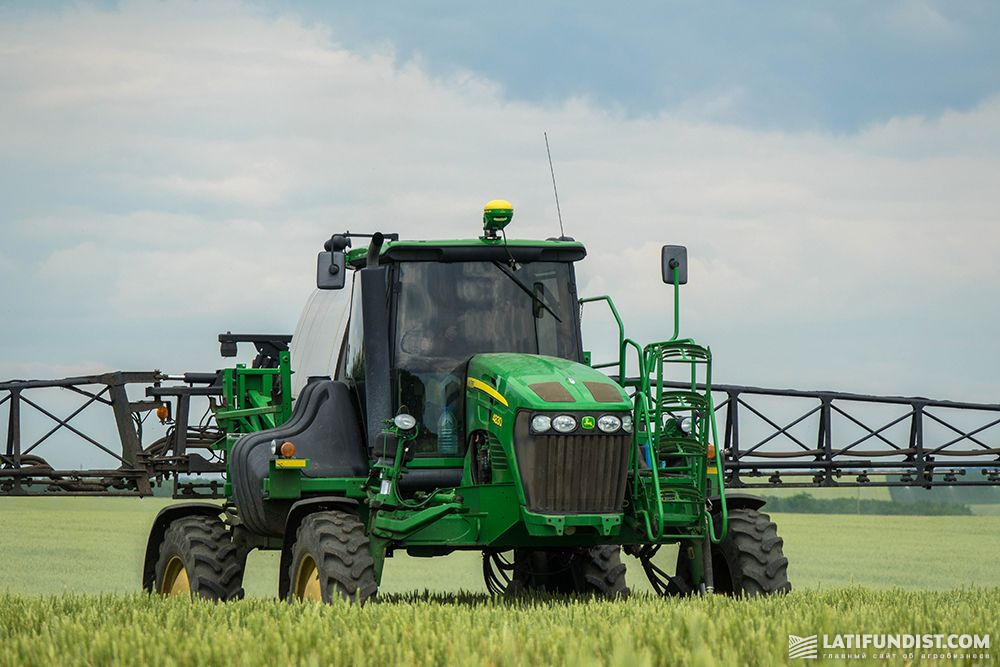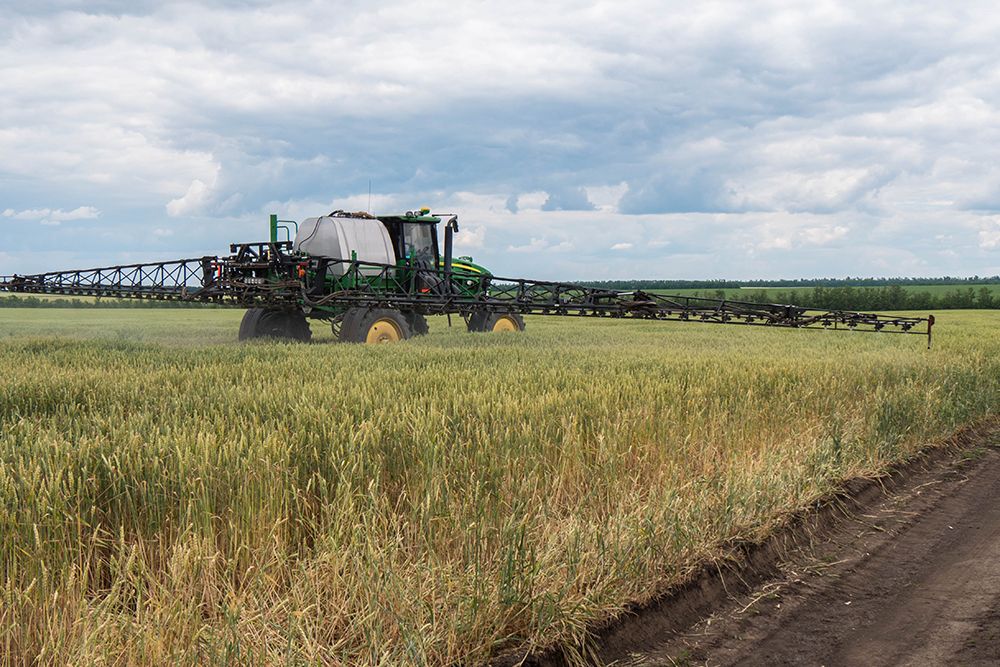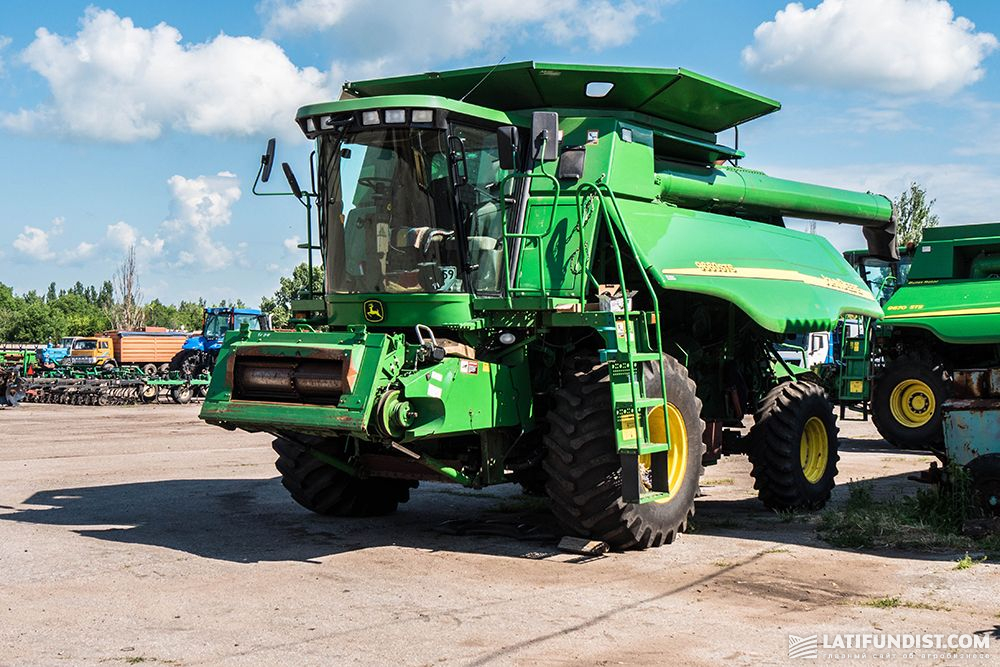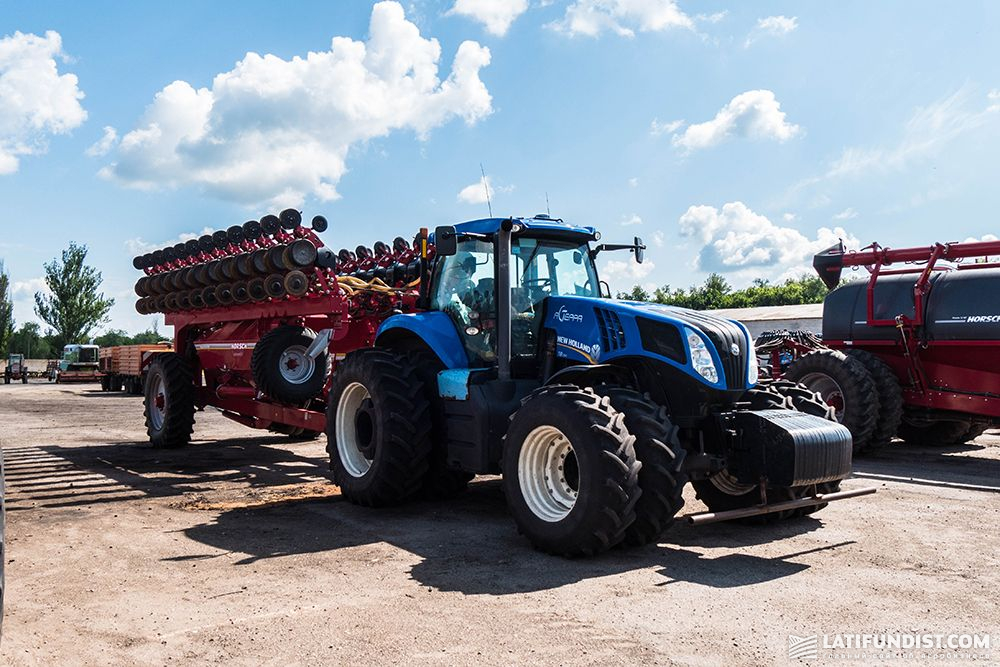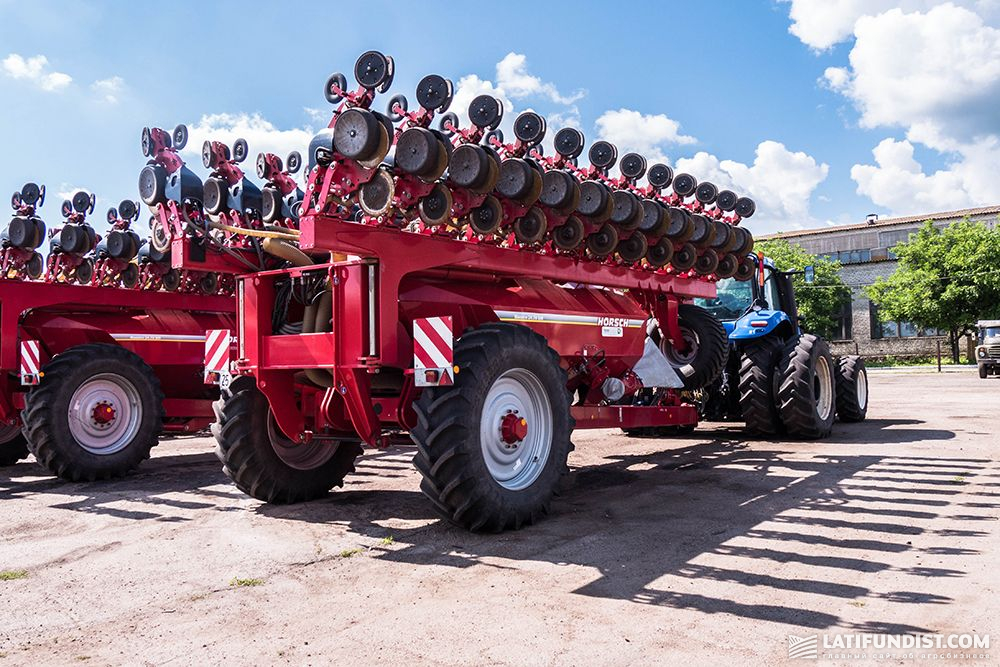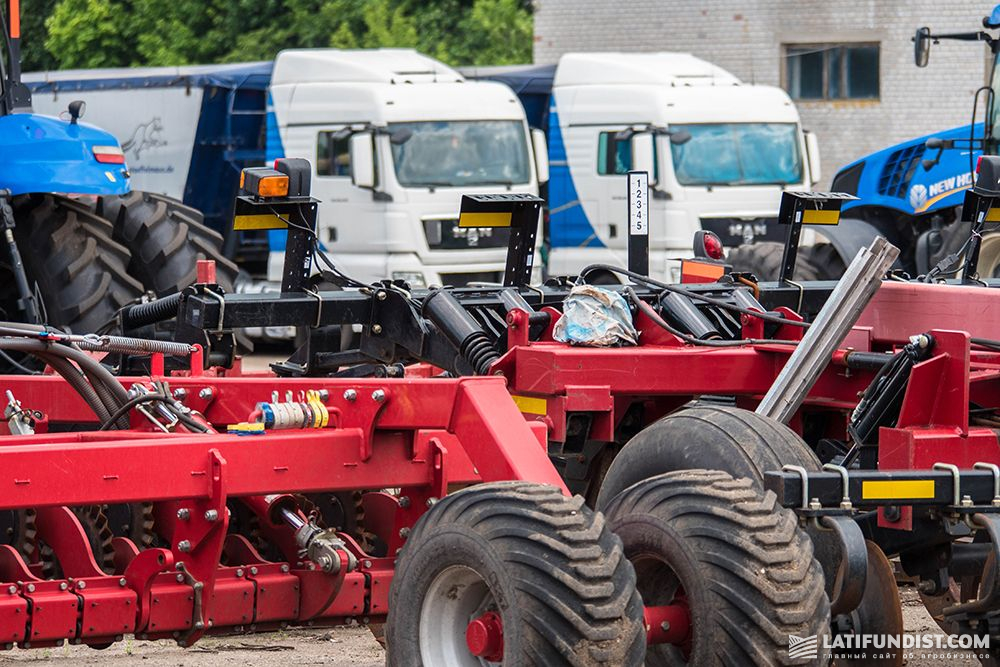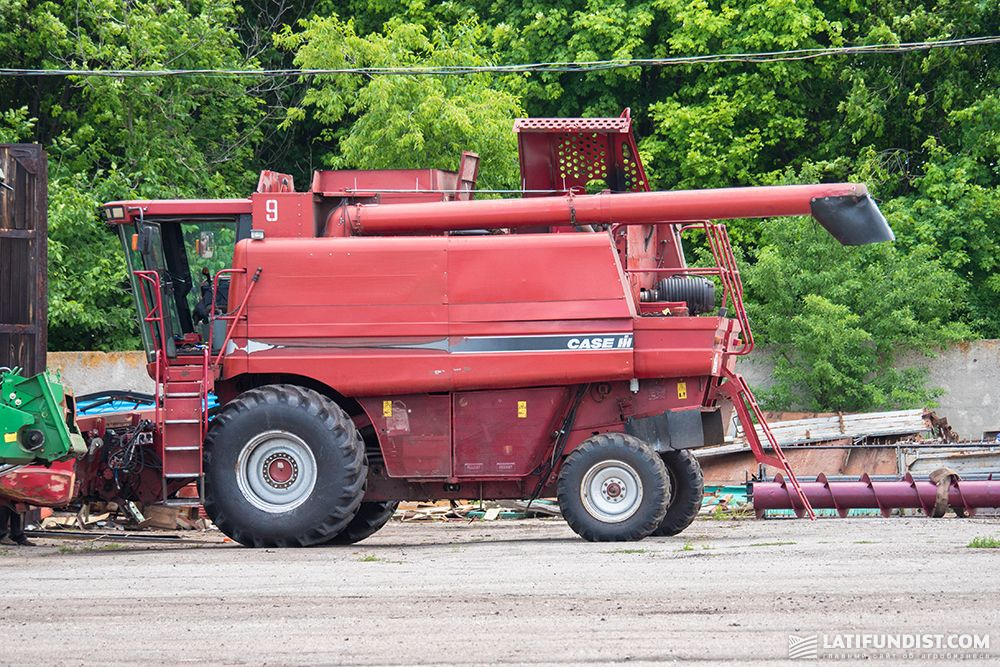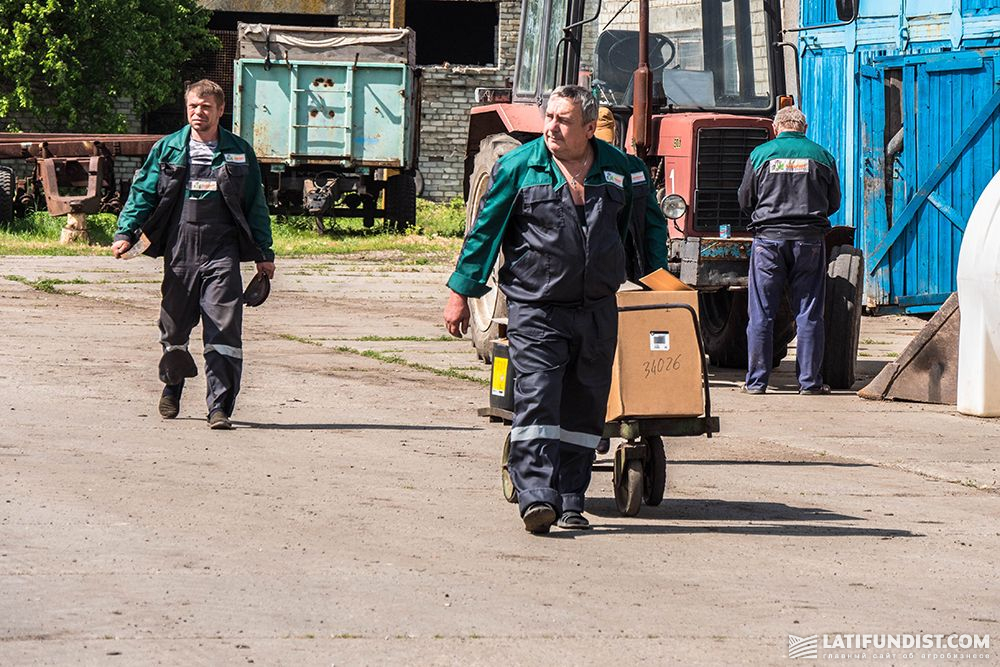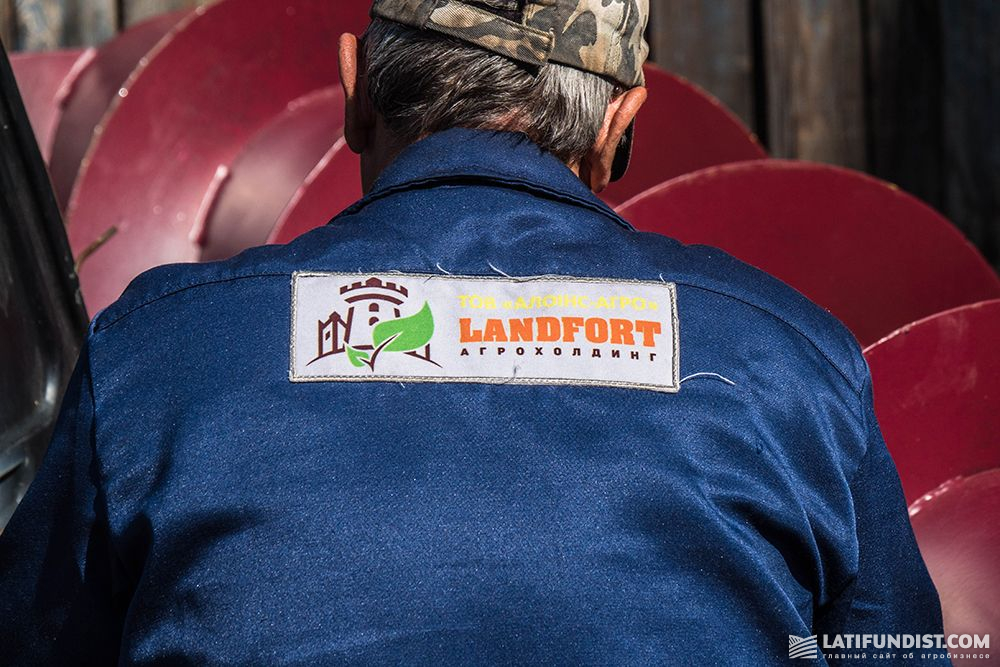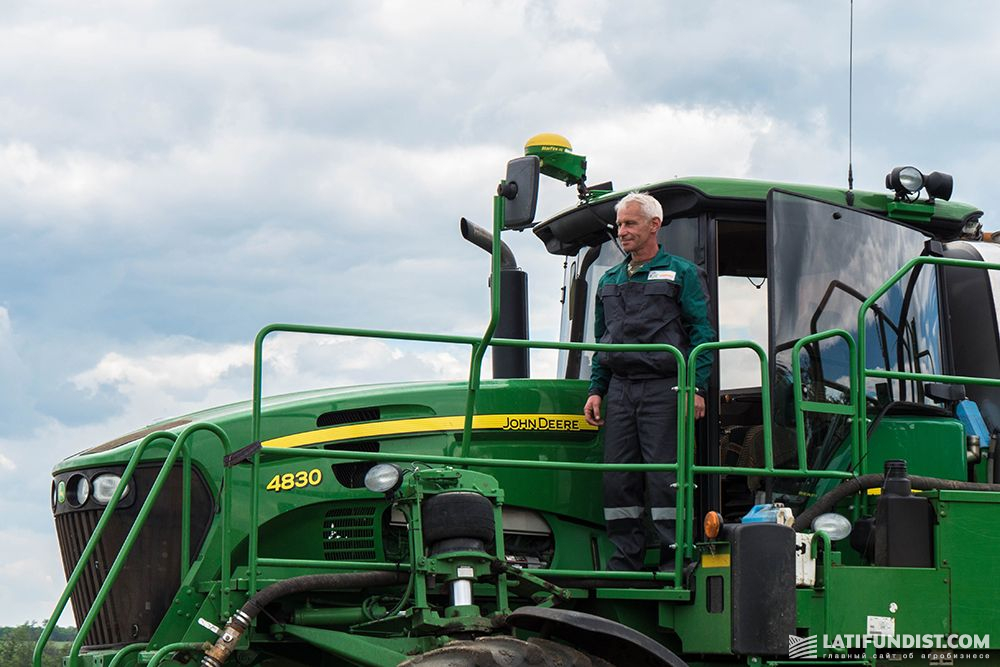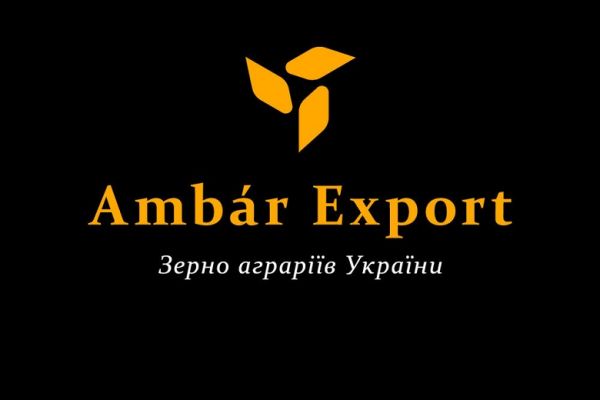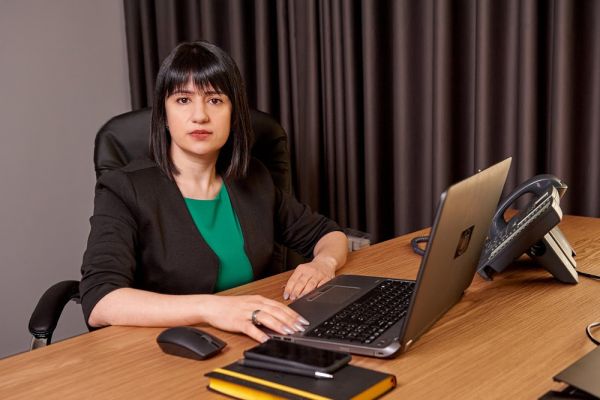LANDFORT Agroholding's Business Card. Agrarian Fortress of BKW
Against the background of rearrangements in the top 10 Ukrainian landowners with hundreds of thousands of hectares, the achievements and ambitions of small holdings with the landbank of up to 50 thousand hectares are somehow lost from sight. Although these agricultural companies rarely appear in financial scandals. These representatives of the golden mean of agribusiness frequently report millions in profit annually. The farms of such enterprises receive the maximum yield for a number of crops in their fields. One of such market players is LANDFORT Agroholding, which is part of BKW Group.
The year of 2009 is considered to be a starting point in the history of agricultural production launch in BKW business. At that time the owners of the agricultural group Vitaly Bogovin and Vadim Kovernik decided to buy Sladkovodnoye agrofirm with a landbank of about 3 thousand hectares. The appetite came with eating and after buying the first asset, the strategy to expand was developed.
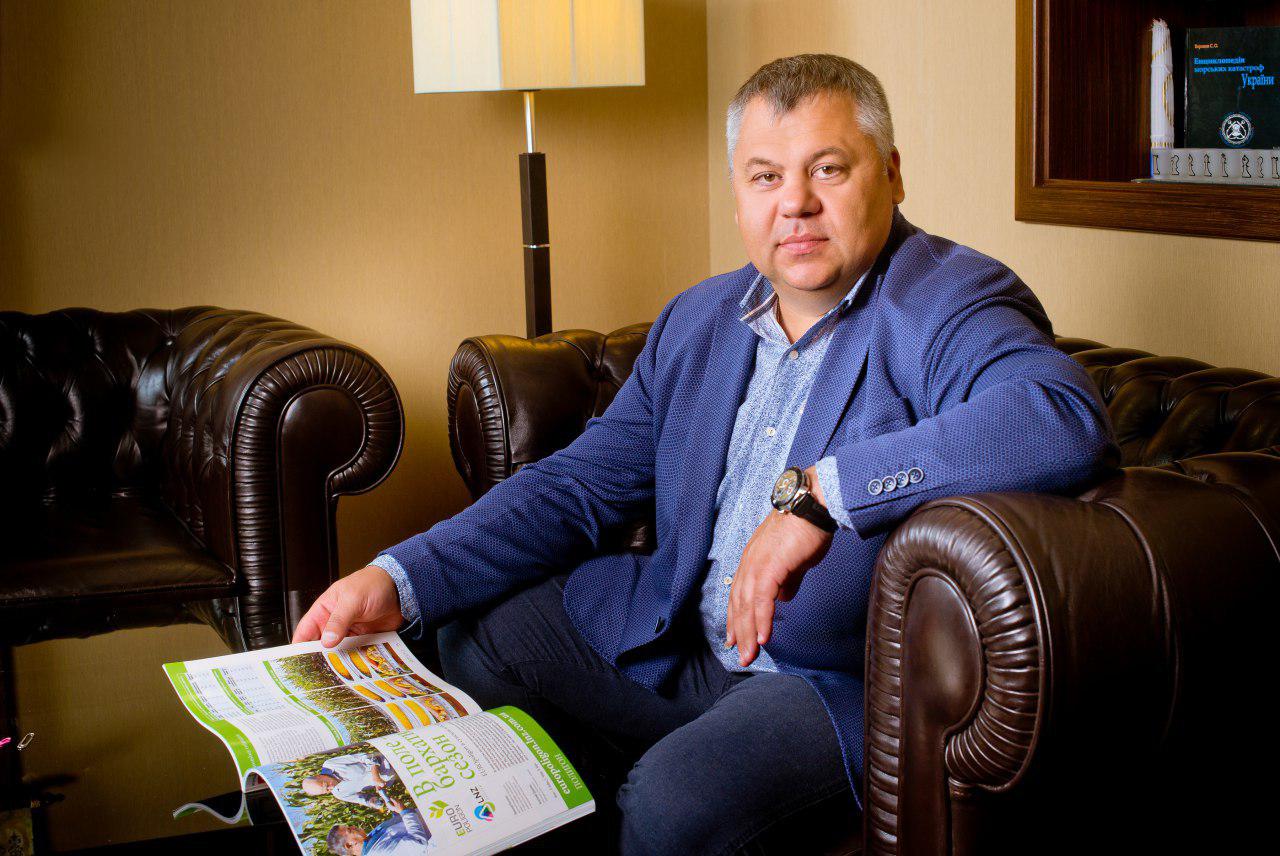
The Crimea was chosen the anchor region for the expansion. It was decided to work on irrigated lands, the Fregat irrigation systems were obtained. As a result, the area under irrigation has doubled by 2013, and, for example, the irrigated corn yielded 8-12 tons per hectare instead of 4 tons/ha. However, due to the occupation, the business had to be closed.
The major part of the foreign equipment was transported out of the peninsula, although irrigation systems remained in the ground as it was too expensive and irrational to transport them.
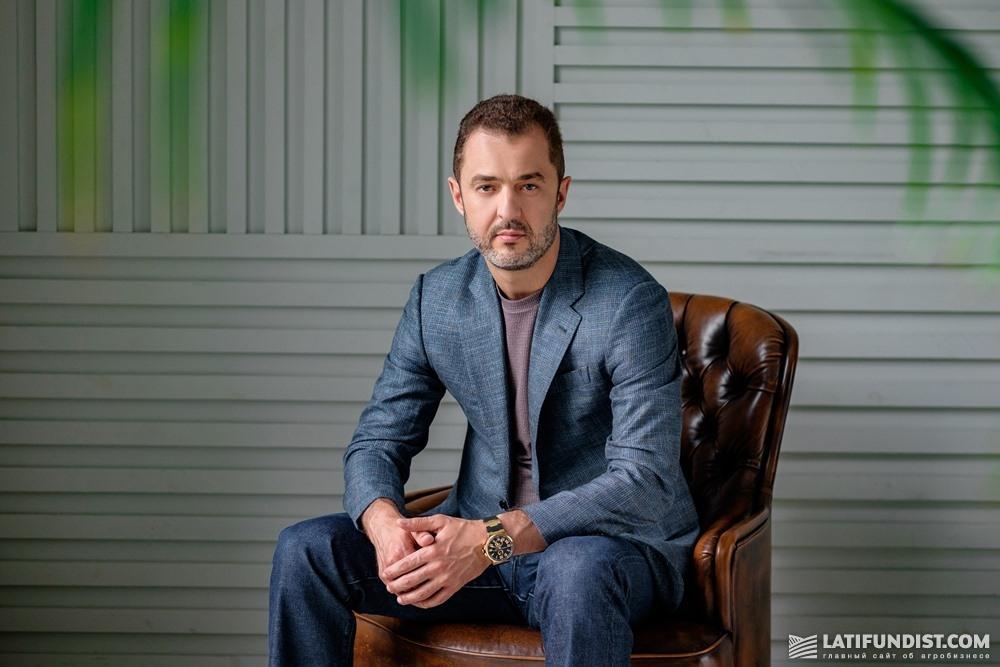
But this blow to business did not destroy the company, instead a new farm in Donetsk region was acquired. This region is also risky for investment, but this is the decision that is considered the beginning of LANDFORT formation.
As of today the total of 7 agro-companies constitute the agroholding.
The year of 2014 became the landmark for LANDFORT — this is when the official registration of the newly created agroholding took place. The holding was headed by Evgeny Bogovin, who had previously managed the agrofirm with a land bank of 30 thousand hectares.
The growth strategy
"When I joined the company, the LANDFORT land bank was only 6 thousand hectares. But in a short period of time it grew to 26.5 thousand hectares. I believe that one of our main goals is to expand the land bank. For the next two years we must increase it to the minimum of 50 thousand hectares", Yevgeny Bogovin begins the conversation.
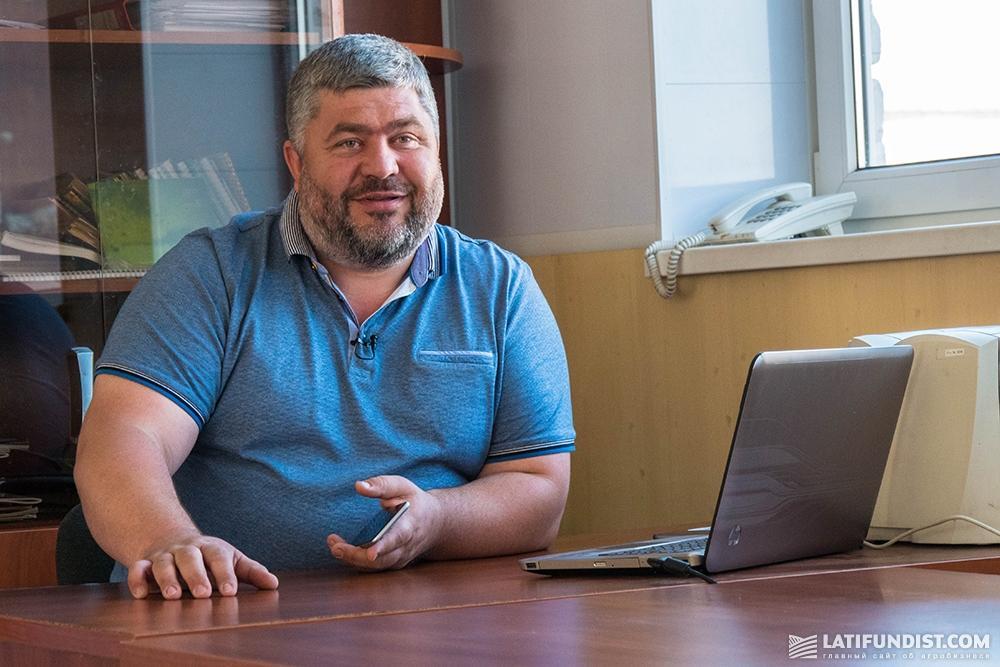
Now the agricultural holding operates in three regions: Donetsk, Zaporozhye and Dnepropetrovsk. But due to the limited natural and climatic conditions of those regions, the management is already considering the central Ukraine, as the company is interested in growing niche crops.
We are moving from theory to practice, to be more precise, to the fields. Together with Yevgeny Bogovin, the Director of the Aloins-Agro Agroholding’s core farm Oleg Luzhansky and the chief agronomist for LANDFORT Alexander Ogarenko, we are going to inspect the crops of sunflower, winter wheat and barley.
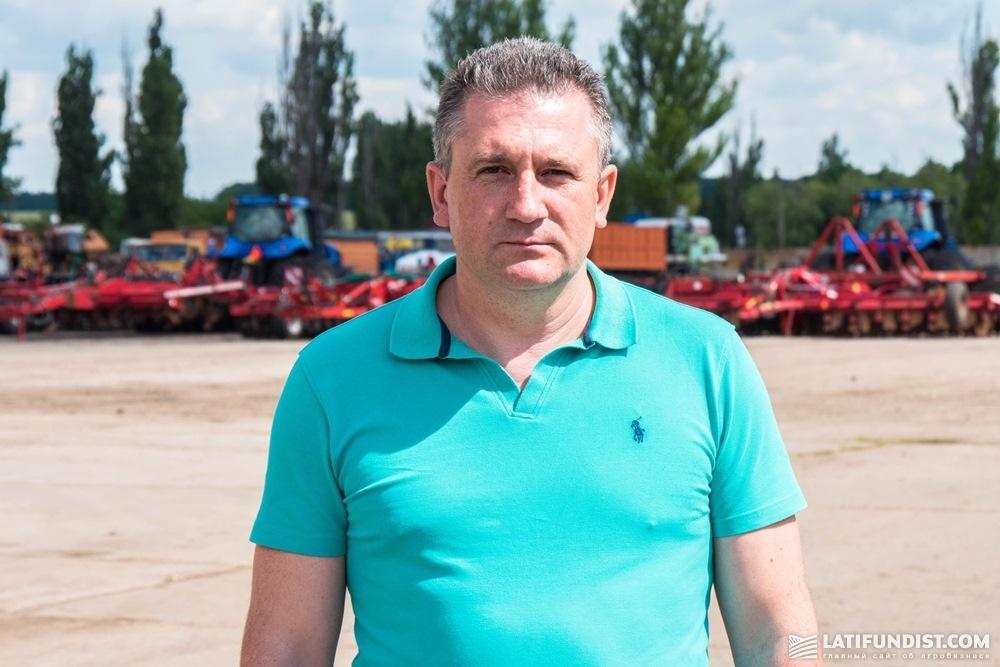
In particular, we were able to observe the spraying of wheat with Sadovnik BT tank mixture of carbamide and insecticide not only from the field road ...
but also from a bird's-eye view ...
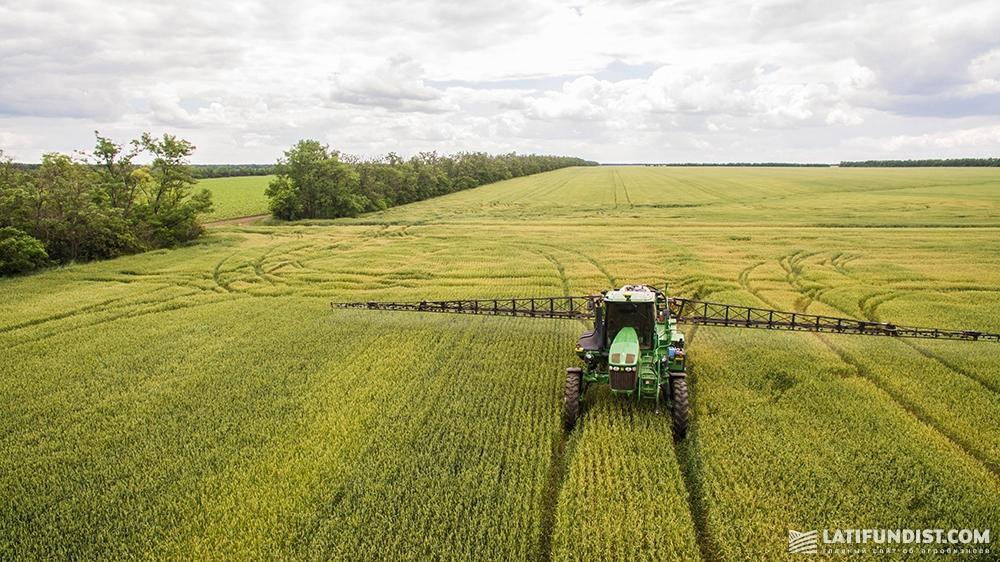
... and directly from the cab of a self-propelled sprayer brought by the company directly from the USA.
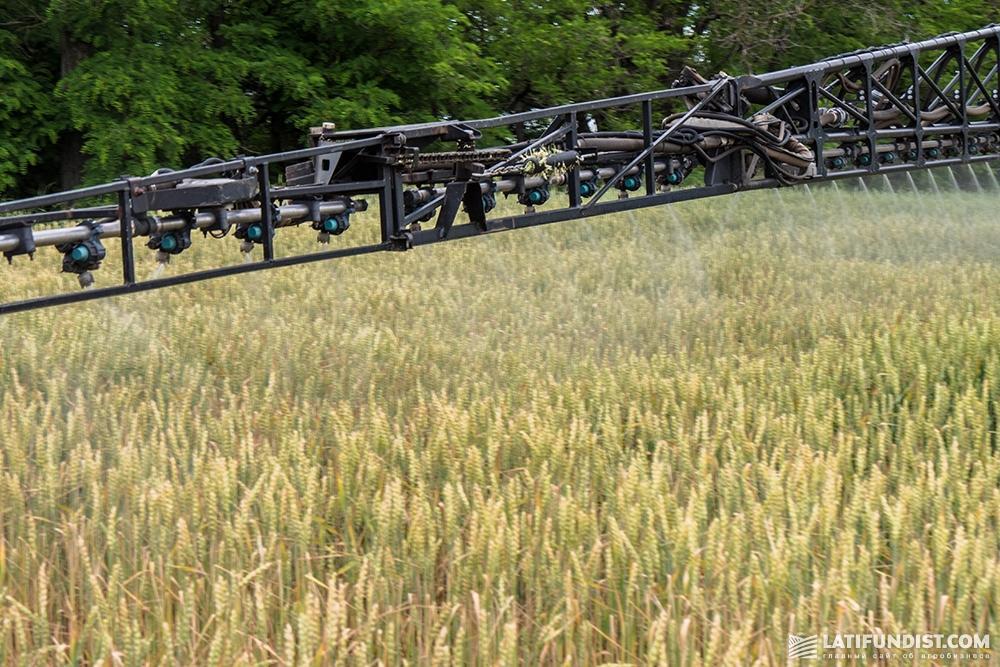
Along the way, Yevgeny Bogovin shares that the main crops for LANDFORT are winter wheat (it takes up to 60% of the sown area), winter and spring barley, peas, grain sorghum and sunflower. Agroholding is trying to adhere to a 4-field crop rotation.
"Regardless of the advanced technologies and scientific developments, the crop rotation will not disappear. We see that a 2-3-field system does not improve the quality of the soil. That is why we have introduced a sorghum crop rotation. This crop was bred in Africa. It is drought-resistant, hence the waxy coating on the leaves, which prevents the ultraviolet from passing through. We get the average yield of 5-6 tons per hectare from this crop," Yevgeny Bogovin says with some pride.
The niche cultures are gradually introduced in the crop rotation: pumpkin, beans, nuts, etc. Experiments with the cultivation of spring rapeseeds are held.
The chief agronomist Alexander Ogarenko shares what operations influence the crops’ productivity in LANDFORT agricultural holding.
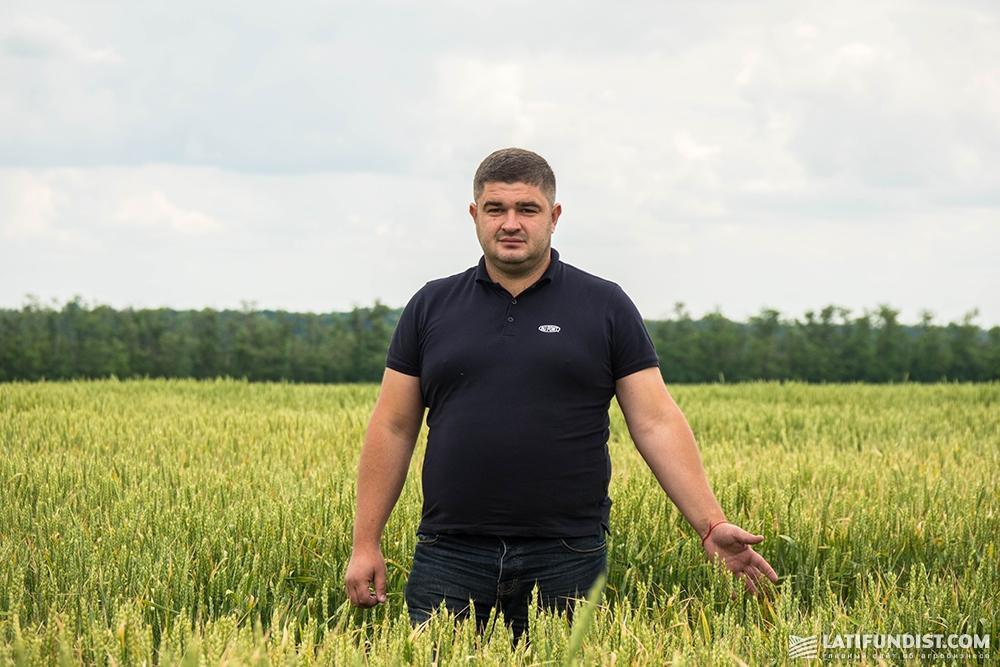
He is sure that the indicators on the holding company should not be summarised, because its structure includes both lands with a "high culture" of agriculture, and the assets which have recently entered the agricultural enterprises.
Technological aspect
LANDFORT has gradually moved away from cultivating the soil with plows. Most of the plows were simply painted and sold, leaving one plow in each farm for the turnover of the soil layer once every 4 years, and also to improve the soil structure.
"With a small agricultural machinery operating in the field, there was no such compaction of soil. And now, when the machine weighs 16 tons and the bunker holds 10 tons, the soil is heavily compacted. Therefore, a special approach to soil cultivation is required. For example, once every two to three years we organize tillage with deep loosening depending on its structure," emphasizes Yevgeny Bogovin.
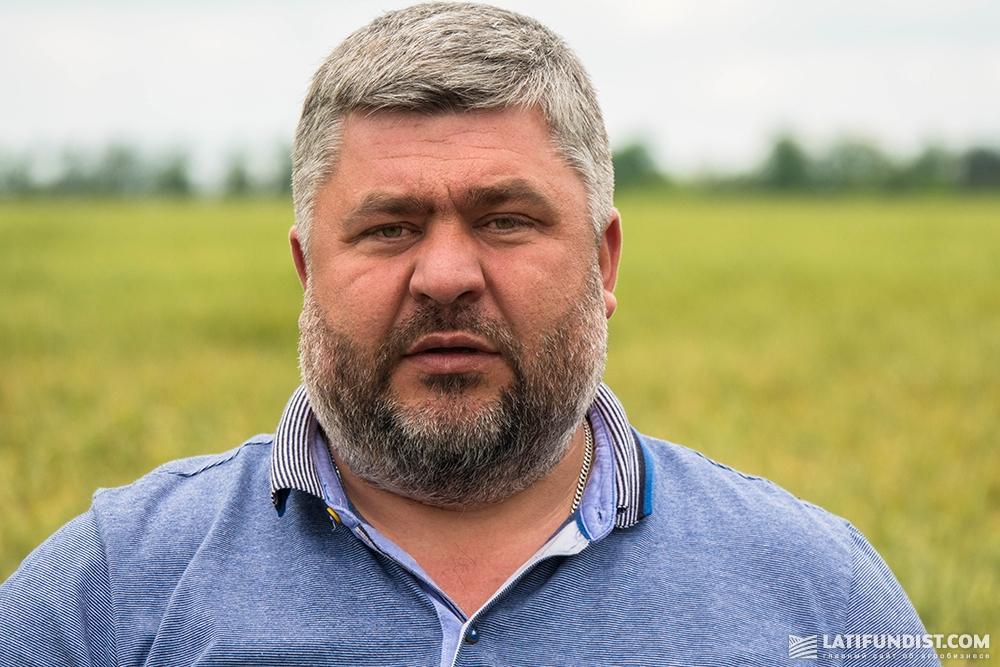
Soil compaction in the company is regularly determined with the help of special devices. In such a way the specialists can find out when a rotating plow should be used in the field and the top layer can be turned over, where sufficient amount of crop residues is accumulated and the living microorganisms work correctly.
The chief agronomist adds that the fertility of the soil is maintained due to the regular application of mineral fertilizers as well. They try not to save on them.
"We have always applied a lot of fertilizers, but this year the norm has been increased. Previously, after grain harvesting, we applied 100-150 kg/ha of ammonium nitrate for stubble discarding, depending on the amount of straw in the field together with of 100 kg/ha NPK with a high content of phosphorus and potassium. For winter wheat we use 100 kg/ha NPK and 100 kg/ha of nitrogen when sowing, and also in spring we add 100 kg/ha of ammonium nitrate and 150 kg/ha locally for permafrost soil," he explains.
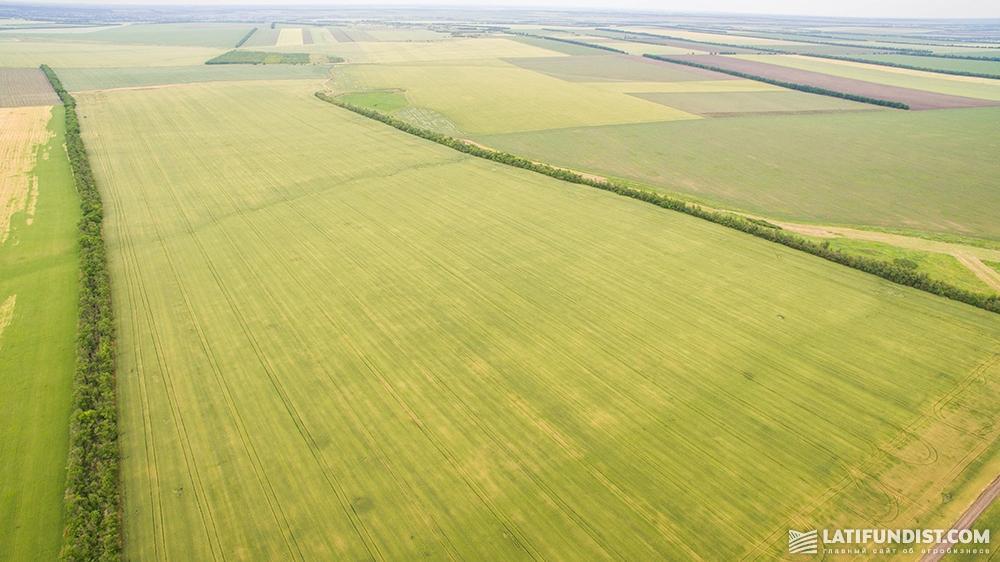
Rational reserves
LANDFORT, like many other agrarians, faced seasonal spring problems due to the shortage of nitrogen fertilizers supply by Ostchem company. The company received 2 cars of fertilizers less than planned. But the problem was quickly solved by redistributing existing stocks in other clusters. Fertilizers have already been purchased in sufficient amount for the new season. As for seed supply and crop protection, LANDFORT relies entirely on the help of its colleagues from the distribution company Bizon-Tech, which is also part of the parent company for the BKW Agroholding Group. At the same time, sunflower hybrids of LANDFORT are 100% foreign selection (Limagrain and Syngenta in equal proportion).
Wheat is grown mainly of Odessa selection.
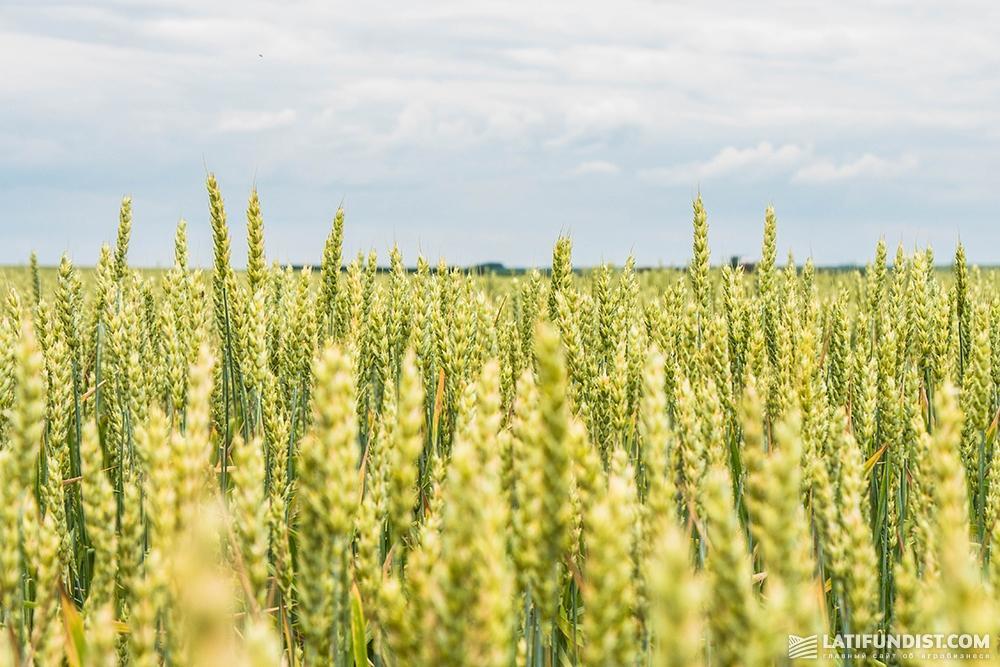
As for the plant protection products, for the last 3 years the holding has been actively using post-patent agrochemicals of the Ocean Invest company. 100% of ground herbicides are Prom BT and Polaris BT. Adept BT is the most actively used fungicide. Along with these, for chemical treatments the chief agronomist applies the following plant protection product originators: DuPont, BASF, Syngenta.
Resource base
Let's move from fields to machinery. The chief engineer of the company Gennady Tabolenko demonstrates the significant vehicle park of the Aloins-Agro tractor brigade.
"Our technical park accounts for more than 1 thousand units of agricultural machinery. This means big costs. But at the same time we constantly keep up-to-date — we purchase modern equipment. Mostly these are New Holland, John Deere and Case IH. In addition, using the GIS Panorama program and GPS navigation, we constantly monitor the relocations of our machinery: fuel consumption, location, performance of planned operations," Gennady Tabolenko begins his demonstration.
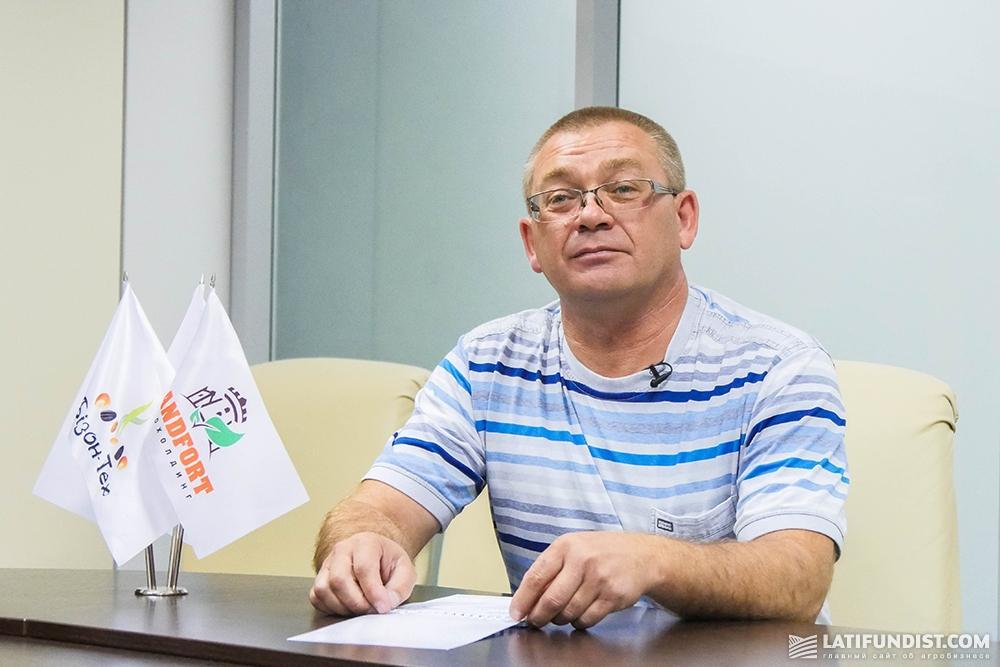
Moreover, navigation for straight-line driving was installed on heavy equipment working for sowing and fertilizing. This year, LANDFORT also relied on the new technology of differential fertilization. This year it has already been tested at 4 enterprises with 300 hectares each.
All seeders of the company have the section-control option installed. This allows you to avoid crossings on the wedge fields and to work without row overlapping.
The sowing complexes for row crops and cereals are represented by the HORSCH models.
"The choice was made, because not all manufacturers offer the machinery that can work under differentiation. HORSCH can work under such conditions and the accuracy of its seeders is top at high speed. We sow the row crops with 24-row seeders, and grain crops are sown with 12-meter seeders," Gennady Tabolenko said.
This machinery was chosen because the feed is performed not from the wheel, but directly via the vehicle speed tracking radar.
And the seeders are driven by electric motors which ensure high accuracy.
In 2016, the LANDFORT vehicle park was replenished with the heavy tractor Fendt 936 Vario. In the company It is referred to as the tractor of future. This is due to the fuel economy and acceleration of agrotechnical processes. The hydraulic suspension enables this tractor to travel at a speed of 16 km/h, while other models operate at the speed of no more than 12 km/h. The agricultural holding combine harvester park is represented by 13 units of imported machinery from well-known brands: New Holland, John Deere and Case. The number of LANDFORT self-propelled sprayers is expected to increase already this year. The proposals for self-propelled vehicles Case and Berthoud are considered.
"Now we have 4 self-propelled sprayers (two John Deere and two Case) and 6 imported trailed Berthoud Tracker and Major vehicles. We are also interested in the self-propelled Case models. A triple drop is fed there by a solenoid. It means you can work even in strong winds. Working height is the disadvantage, but so far we haven't had any issues operating the Case machinery," notes Gennady Tabolenko.
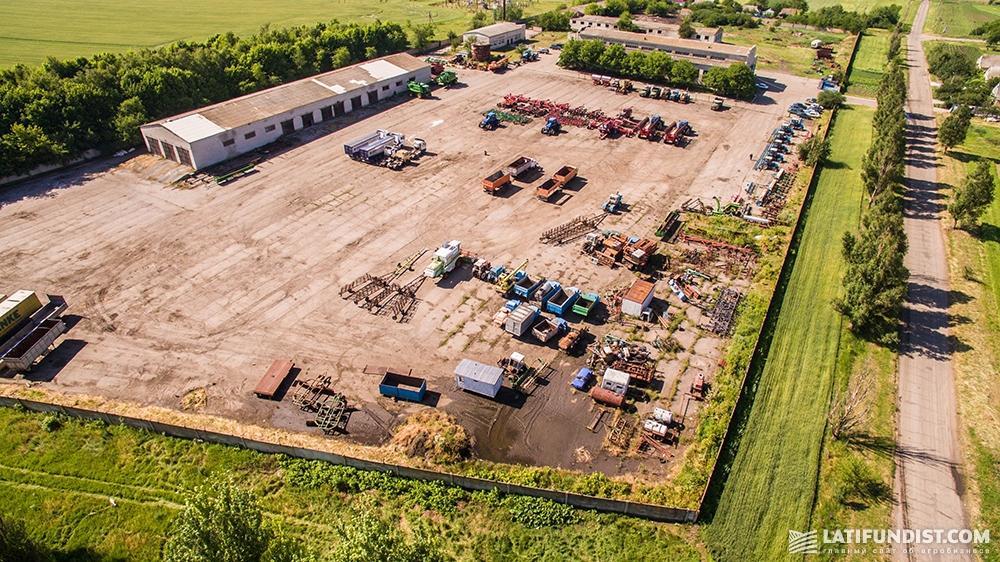
The chief engineer and the company management always take into account the wishes of the agronomic service when performing the technical re-equipment. The equipment for clusters is selected according to the features of the regions where a certain farm operates, including soil density, soil composition, etc.
The financial component
Today, LANDFORT employs more than a thousand people. This figure certainly increases in the high season. The average salary in the agricultural holding is over 5 thousand UAH.
Every year, LANDFORT pays about 20 million UAH of various state taxes. And although the amount of taxes itself practically has not increased for the company, after cancelling the special VAT refund regime, the company felt an additional financial burden.
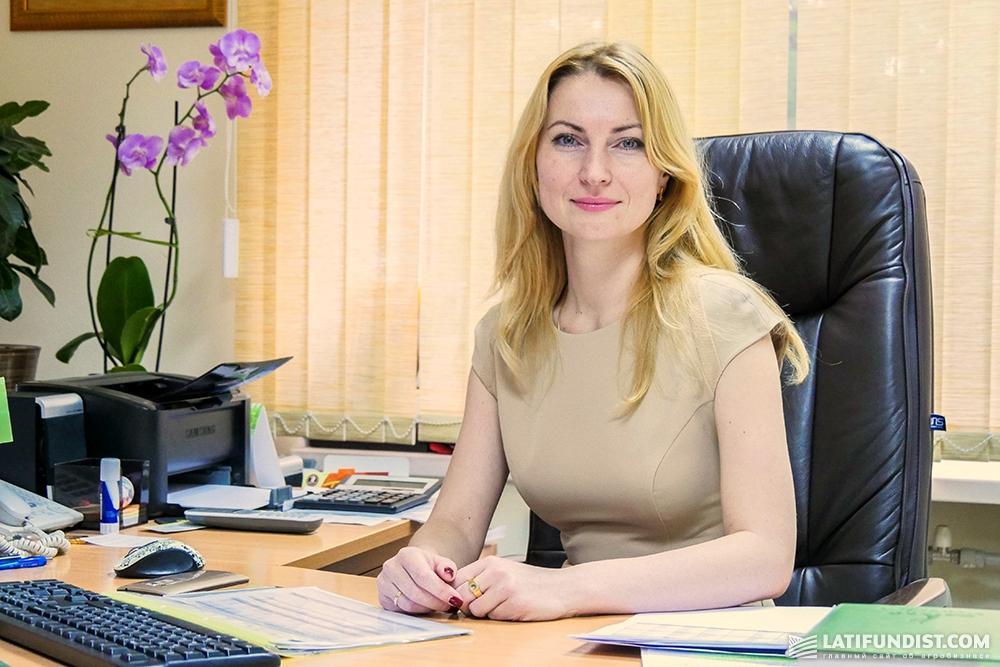
"The amount of taxes has increased only due to the annual increase in the payroll and the single tax rate increase for the fourth group (agricultural enterprises), since we began exporting our harvest independently, applying a zero VAT rate. But the profitability fell after the abolition of the special regime, it used to be a significant support for farmers," complains Financial Director Oksana Kondratyuk.
The agricultural holding does not actually claim the export VAT refund. Oksana Kondratyuk explains that the entire stock of the tax credit is used when the company sells its sunflower in the domestic market.
The entire BKW group of companies, including LANDFORT, is now finishing the one and a half-year structuring and audit by Deloitte.
Social responsibility
The company believes that they do not need to further stimulate the villagers in order to increase the land bank. The core enterprises are successfully operating in the regions, and fair relations have been established with the shareholders.
"They can receive their share in either money or grain, offered at a market price. We also pay a decent rent of an average of 2,5 thousand UAH/ha. In such conditions, people do not need to look elsewhere", explained Oksana Kondratyuk.
Today, LANDFORT operates in more than 10 locations. And the company is well aware of the difficult financial situation of villages in the whole country.
Yevgeny Bogovin joins the conversation. He says that he personally tries to keep track of the social programs which are introduced in the settlements supervised by the agricultural holding.
"There are a lot of examples when core farms disappeared from the territories of village councils. When you stop by in such a village, it's painful to see that it's almost gone. The infrastructure disappears there. I know villages with no school, no hospital etc. And our villages live. We hold various cultural events there, support schools, manage funds for the development of local infrastructure, for example, for servicing rural water supply," says General Director of the agricultural holding.
The agroholding allocates funds for Corporate Social Responsibility Programs at the rate of 20 UAH/ha. While this amount is spent only for infrastructure project, schools and medical facilities are additionally financed by the company.
Annually over 1 million UAH is allocated for social projects.
The Future
The company claims they plan 10 years ahead and further.
"I envision the agroholding, which I manage, as a powerful company, which will be at least in top five leaders among Ukrainian agricultural producers. For this we have a team to rely on, the necessary technological equipment and the ability to win," says Yevgeny Bogovin confidently.
What is the reason for such optimism? The General Director for LANDFORT claims that the company's economic indicators support such optimism from the very first year on the market. Since 2014, the agroholding has demonstrated dynamic profit, gradual building up of the land bank and stable technical re-equipment.
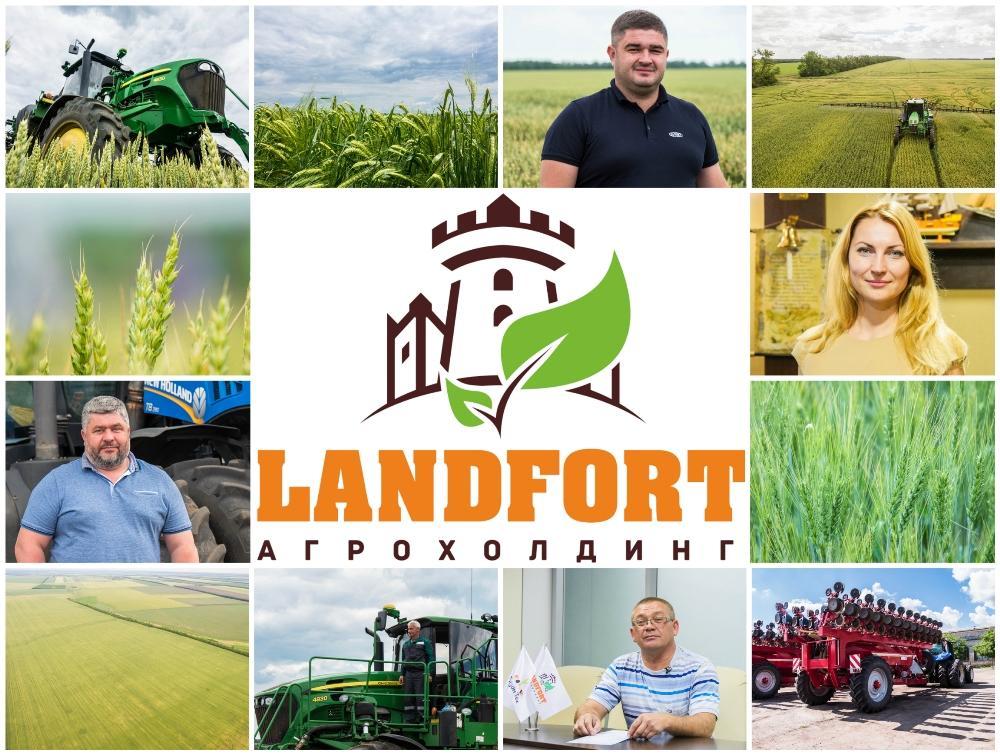
The Latifundist.com team left Aloins-Agro, without saying goodbye to the leadership of the LANDFORT Agricultural Holding, and promising to observe implementation of the company's plans in real life. We are grateful for the warm welcome and the opportunity to get to know the history and realities of the development of the average agribusiness representative in Ukraine.
Alexey Beskletko, Konstantin Tkachenko, Latifundist.com
